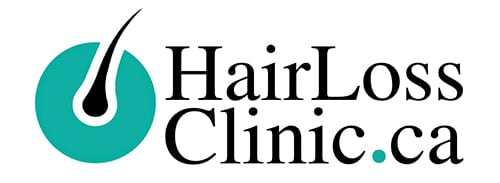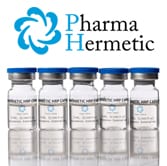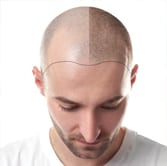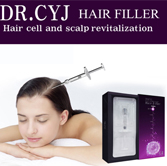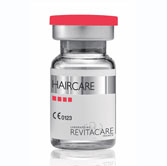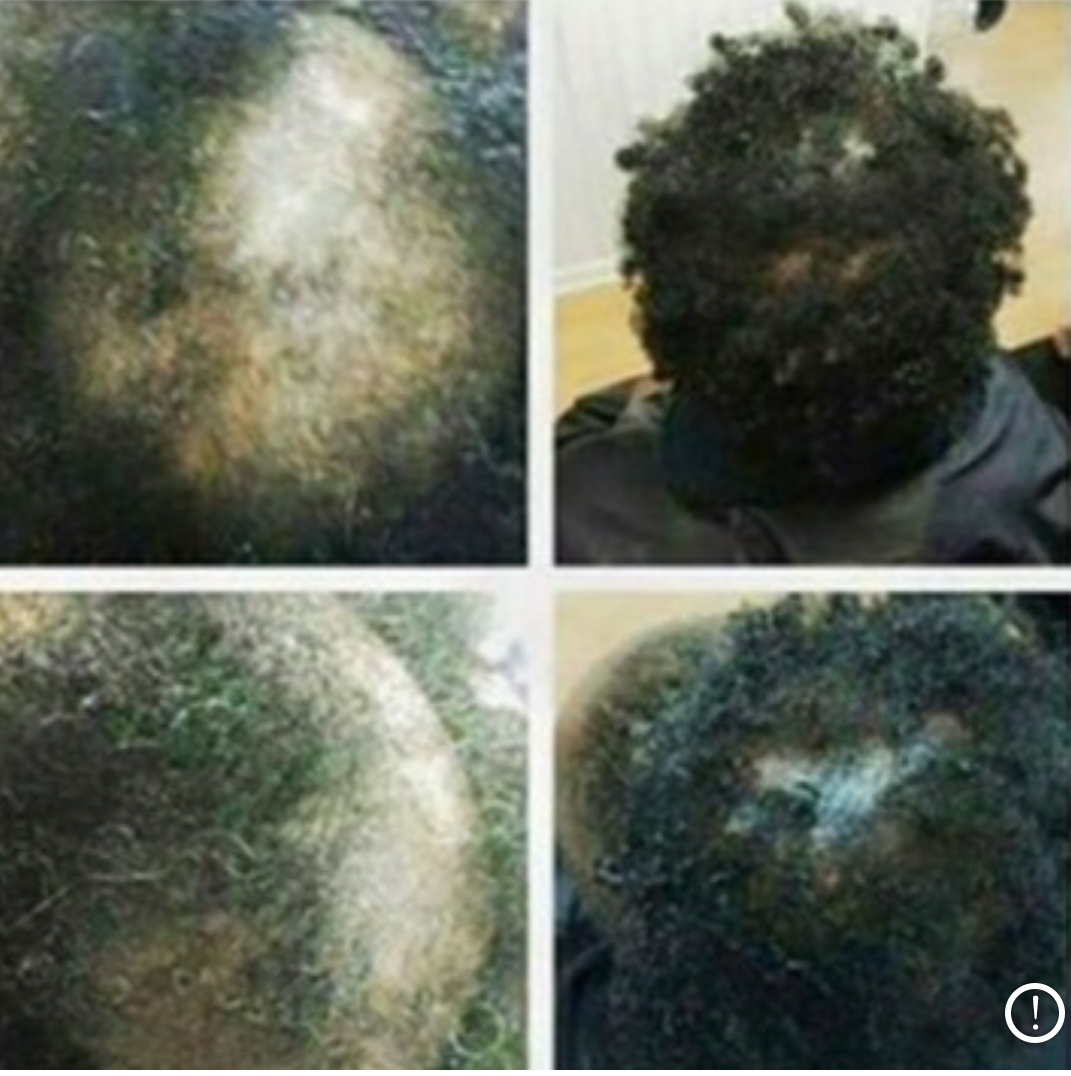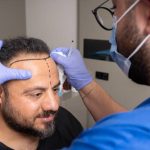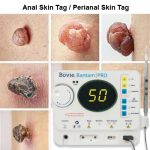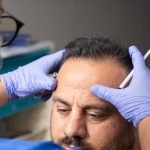Table of Contents
Androgenetic Alopecia Hair Loss Causes in Men and Women in the Toronto Area
Androgenic Alopecia Hair Loss
Healthy looking hair is one of the first things that attract the attention of the people we meet in our daily lives. A balding head, thinning hair, or unhealthy-looking hair can affect people’s self-confidence. In the past, the only option for alopecia hair loss was wearing a wig or toupee, and baldness therapies were nonexistent. In recent times, there have been major advances in surgical and non-surgical androgenetic alopecia solutions.
Non-surgical advancements in dealing with alopecia have been improving over the years, some procedures obtaining excellent results. In Toronto and Greater Toronto Area, there are a variety of alopecia hair loss therapies and alopecia hair loss treatment available if you are losing your hair. Hair Regeneration Treatment Using Adipose-Derived Stem Cell Conditioned Medium AAPE Haircare serum is a non-invasive treatment that can be applied in a clinical setting without discomfort or downtime as a alopecia hair loss treatment. AAPE stem cell therapy have gained in popularity in recent years because of its effectiveness, reasonable cost, and that fact that it’s a non-surgical procedure with no down time.
Androgenetic Alopecia causes
Androgenetic alopecia, or common balding, occurs in both men and women and is caused by testosterone metabolites in genetically susceptible hair follicles. Thyroid disease, protein deficiency, anemia, stress, age, chemotherapy, secondary syphilis, and low vitamin levels may cause alopecia hair loss.
Genetic Alopecia hair loss
With Genetic balding, alopecia hair loss is affected by your genetic make-up. Along with age, starting from your adolescent years, especially if you’re male, the hair on your head begins to thin progressively, leading to steady loss of hair growth and volume. This is commonly known as male pattern baldness. What is happening behind the scenes is that the male hormones in your body inhibit certain hair follicles causing them to lose size and volume. A combination of good nutrition, and an effective alopecia hair loss therapy like AAPE can bring about positive results.
Reactive Alopecia hair loss
In this type of alopecia hair loss, a trigger is usually responsible for the damage. The trigger could range from deficient nutrition to illness, a crash diet to sever stress or a combination of any or all of these reasons. Some of the most common triggers of alopecia hair loss in men and women are:
Hormonal Imbalances
Imbalances in the male and female hormones in our body can end up causing leaving us with a multitude of aesthetic issues, like acne, obesity and alopecia hair loss. While female hormones or estrogen promote hair volume and growth, the male hormones or androgens tend to strip our hair of vigor and vitality. An overproduction of androgens could leave you with thinning hair on your head or even worse, a bald head. Diagnosing and treating hormonal imbalances along with the intake of hair growth vitamins can treat such alopecia hair loss problems.
Stress
Extreme stress over short periods or high stress levels over a prolonged duration can boost androgen levels, thus resulting in alopecia hair loss. Stress is also known to lead to dandruff which could in turn lead to further alopecia hair loss. Apart from this, stress leads to sleep deprivation and lack of appetite, which again contribute indirectly to alopecia hair loss. Aiming for a stress-free lifestyle can have a salutary effect on our hair and its health. Yoga, meditation and natural foods immensely help in reducing stress in our lives.
Vitamin B12 deficit
Apart from reducing our energy levels, a deficiency in vitamin B12 can also take its toll on our hair. Since B12 is present in animal protein alone, the problem of thinning hair and alopecia hair loss are seen in people who swear by a vegan diet.
Weight loss through crash diets
The desire for an overnight hourglass figure could prove costly for your crowning glory. Unhealthy quick weight loss programs usually leave us weighing lighter but then there is the inevitable alopecia hair loss that follows a couple of weeks later. So, it’s better to stay away from crash diets and focus on weight loss regimes that are based around healthy diet and moderate physical exercise.
Age
As we age, the hormonal production in our body tends to slow down. The effects are more pronounced in women who are approaching their menopause. The impact is generally evidenced by thinning and listless hair. Hormonal supplements can help address such alopecia hair loss problems.
Identifying androgenetic alopecia
Recognizing an androgenetic alopecia issue requires proper observation before it can be conclusively diagnosed. Since our hair has specific growth cycles averaging three months or so, it may take as long to recognize a pattern and identify the trigger. Consulting an experienced technologist helps immensely when you’re faced with doubts about alopecia hair loss.
Addressing alopecia hair loss
Alopecia hair loss is caused either due to genetic causes, hormonal issues, diet or stress triggers. Once you identify the cause, it becomes easy to resolve the issue. Apart from addressing the triggers, you can opt for hair restoration treatments.
Apart from nutritional supplements, there are alopecia hair loss therapies such as PRP and AAPE. Platelet Rich Plasma therapy or PRP hair treatment can help address hair fall and alopecia hair loss problems. PRP involves injecting the scalp with your own blood after it has been centrifuged for its healing properties. A review stated more evidence was needed to determine PRP’s effectiveness for hair regrowth. Also, if the prospect of using your blood in a PRP injection doesn’t sound too appealing, you can consider Advanced Adipose-derived cell Protein Extracts (AAPE) hair care serum which is non-invasive and effective in regenerating hair growth. AAPE has been steadily growing in popularity, with more than 500,000 procedures performed worldwide.
Our Alopecia hair loss clinics are conveniently located and easily accessible in the Greater Toronto Area. So even if you have already taken a PRP hair treatment, you can still benefit from AAPE sessions. Alopecia hair loss clinic has locations in Toronto and Richmond Hill.
To Book your in-office consultation, please contact us at 647-492-9093 or visit our website to book a free professional consultation here: https://hairlossclinic.ca/hairloss-assessment/
Comments are closed.
